The Key to Longevity in Trading: Exploring Purpose Beyond Profits
How can traders feed their contribution purpose
I share a paid post with all readers in the first week of each month. This week's edition is that special post—enjoy the read!
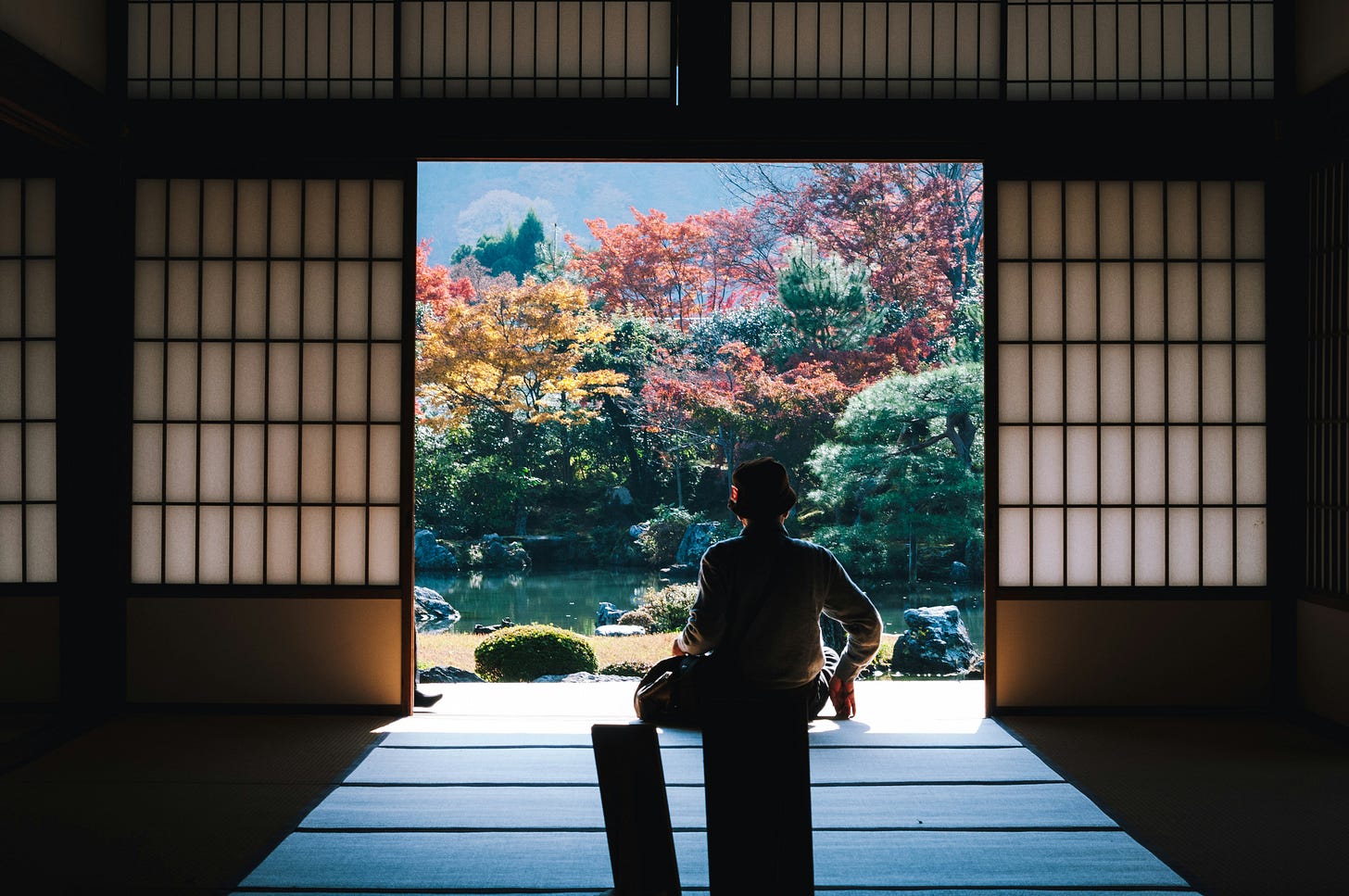
The other day, after having it on my watchlist for months, I finally watched the promising Netflix documentary “Live to 100: Secrets of the Blue Zones”. (Shoutout to my client Corey, who practically made me do it).
For those who haven’t watched, the documentary follows Dan Buettner as he ventures on a global journey to discover the key factors contributing to a long life.
Dan traveled to blue zones — regions worldwide where the percentage of people living to 100 and beyond is unusually high — and immersed himself in those people's daily lives, routines, and culture.
And we’re not only talking about longevity; these people’s well-being and life satisfaction were above average.
The results?
Dan identified nine main contributors to longevity!
I won’t reveal all of them; I don’t want to spoil it if you’re planning to watch. But to proceed with today’s topic, I’ll talk about the one that struck me the most.
And that is purpose.
That’s right. One of the critical factors of longevity is having a strong sense of purpose in life.
Today’s read is about how this ties to trading. We’ll zoom out to discuss your trading purpose, helping you direct focus toward the process and leave the money aside.
In the “Live to 100” documentary, Dan references the unique ways each Blue Zone embraces this sense of purpose:
In Nicoya, Costa Rica, the “Plan de Vida” concept emphasizes the importance of having a clear mission that drives daily life, whether it's family, work, or community service.
On the island of Ikaria, Greece, the purpose is closely linked to a slower pace of life and strong community bonds.
In Sardinia, Italy, purpose comes from maintaining strong social networks and engaging in communal activities. The elderly play active roles in these.
In Loma Linda, California, USA, a significant population of Seventh-day Adventists finds purpose through their faith.
But the concept of life purpose that intrigued me the most came from Okinawa, a small island in Japan. You may have heard of it before—it's called Ikigai, which translates to "a reason for being."
Here’s a visual representation:
A quick breakdown:
What You Love (Passion): These are activities you genuinely enjoy.
What You Are Good At (Profession): This refers to your skills, strengths, talents, and abilities.
What the World Needs (Mission): Finding a cause that aligns with your values and beliefs while delivering to the world.
What You Can Be Paid For (Vocation): This refers to activities that can provide financial stability.
It’s curious how this applies to trading…
In their first years, traders often align with the love and good at circles—they begin trading out of passion (one would hope) and gradually refine their approach based on their strengths, whether that's quick decision-making for scalping, thorough research for long-term trading, or a blend of intuition and systematicity.
As they gain experience and start seeing results, the paid for circle comes in.
However, for many traders I talk to, the circle that remains unfulfilled is “what the world needs.” This aspect entails a mission—delivering something of value to the world and those living in it.
As we see in the image above, the intersection of love, good at, and paid for results in passion and profession but can also lead to "Satisfaction with a sense of no positive impact on the world" (as shown in the top left).
The challenge lies in finding a way to contribute to the world through our trading practice. How can you do this?
How Can Traders Fulfill Their Need for Contribution?
The other day, in a discussion with a client, he brought up the question: “How can one feel of service with trading? What’s the point?
These are questions some traders never thought of before. And you usually don’t need to when you’re still focused on reaching consistent profitability — there’s a clear goal in mind that brings a set of challenges.
However, when you achieve some sort of financial comfortability with trading, another set of problems and questions arise (the problems don’t go away; they just evolve into new ones, which is a good thing because challenge brings motivation.)
This was the case with my client—he was in a comfortable position and found immense fulfillment in improving his strategy and performance, but he was quite lost when it came to his world contribution purpose.
These topics are important to discuss. It’s not only about achieving financial success with trading. It’s important to cover what other challenges come with it. The contribution purpose of IKIGAI is one of them.
“What The World Needs”
Unlike other jobs, occupations, or performance skills, trading offers a direct link between execution and money.
A doctor derives fulfillment from healing patients, which is how they earn their income.
A lawyer finds reward in saving their clients’ butts out of prison (add drama to it).
An IT professional feels accomplished by solving complex problems and cracking the code—literally!
Athletes find purpose in pushing their physical limits, competing, and ultimately standing on that podium.
In each of these careers, the sense of contribution and service to others is intertwined with their work.
A trader, however, earns money purely through making trades (and much waiting). That’s it. There’s nothing in between.
One could argue that there is technical analysis, market interpretation, and a high level of intellectual skill. But these don’t fulfill the contribution purpose these traders lack.
Contribution takes a higher purpose, a way of giving, providing, and creating value. Not only pure money.
In reality, pursuing money can only bring happiness up to a certain point. Research has found that experienced well-being does not increase above incomes of $75,000/y. How crazy is that!?
Look at the graph below taken from “50 Trades in 50 Weeks” post.
Financial freedom is only one part of the “happiness pursuit” project (which is questionable anyway—a topic for another post).
It might sound cliché, but it’s not only money that adds purpose, excitement, well-being, or happiness to life, but what you do to get there.
Just as money cannot be the only source of life satisfaction, trading will hardly fulfill one's entire life purpose. Making it your sole source of fulfillment is a recipe for burnout.
Trading can fulfill your need for intellectual stimulation, decision-making skills, emotional intelligence, and self-discovery.
However, if you find that trading is not meeting your deeper need for contribution, it may be time to shift your perspective from “How can I fulfill my contribution need through my trading practice?” to “How can I utilize the money and skills from trading to fulfill my contribution?”
Money As a Tool
While this reward is inherent to performance in other skills, it’s the trader’s responsibility to find a way to fulfill this need. This often means using the money earned from trading not as an end but as a means to achieve a higher purpose.
There are many ways traders can use their resources and skills to contribute meaningfully:
For instance, there was this trader I worked with who contributed to a volunteer cause. He also aimed to open his own non-profit to help kids in need.
Another was teaching his strategy to a small group of 2-4 traders while seeing them progress.
And this trader friend is flying helicopters to rescue people in Alaska and help in other missions. Isn’t this great? It’s a perfect example of finding purpose in something completely unrelated to trading.
The first step is self-awareness — understanding what might be missing in your life and identifying what could provide that sense of fulfillment.
Trading doesn't have to define you, and using it as your sole identity will be pretty costly. Trading is not your only passion.
Although cracking the code of this field might be an obsession for now (and obsessions are healthy for a short period), you cannot reduce your entire existence to it. This is true for anything.
Professions fulfill some of our needs but not all. That’s why we need multiple sources of well-being in life to complete us as beings. When we fail to have those sources, we unbalance the scale and channel too much emotion into one area. This can be very dangerous.
We must zoom out….
Stop Segmentation, Embrace the Whole
Think for a second: Why did you start trading, and what has kept you going?
Your reasons might include:
The love for mastering a skill that few do
The eagerness to self-improve and discovery
The idea of financial freedom
The control over your time and your rules
The idea that it’s you against you
…
While these factors certainly shape your journey, there is often a deeper force at play—a core life purpose or passion that goes beyond these surface-level motivators.
For instance, your need for complete control might extend beyond trading. It could not only lead you to trade but also influence how you teach your kids, how you relate and inspire others, and your place in your community as a leader others look up to.
Or the fact that you’re inspired by self-improvement may uncover the higher purpose of improving others.
In other words, trading cannot fulfill your entire life purpose; instead, your life purpose feeds your trading and all the different aspects of your life.
Many times, traders clarify their life purpose through trading. This is mainly because trading is a vulnerable place, which can be seen as a bad thing.
The truth is that it also brings your most authentic side to the surface, one you have never faced.
As trading uncovers your biggest insecurities, it also reveals your greatest strengths, passions, and purpose.
It’s under vulnerability you find yourself.
Segmentation is disempowering.
When you see things from this perspective, you start to view your life as an integrated whole rather than a series of segmented parts.
Living with a singular purpose and aligning all your actions and endeavors with that purpose is far more fulfilling. It’s up to you to identify those things and then live accordingly.
As Brent Donnelly says: “Optimize for life satisfaction, not money.”
No Pressure…
I know that the expression life purpose might put some pressure on you, but in reality, your purpose is constantly evolving.
It’s not like we used to see college degrees back then — you’d do what you take as a course for life. You adjust your purpose with your life experiences.
When we don’t live according to our core principles—which tell us a lot about our life purpose—we frustrate ourselves, create stress, and burn out.
I’d say identify a purpose or a life principle that makes sense to you and profoundly motivates you, and then look to fulfill everything you do according to that exact purpose.
That’s how you live a meaningful life and remove a ton of pressure to perform from your trading.
Money was never an end in itself. Even if you’re not there yet, I hope this approach helps you move one step forward in your trading journey.
Task of the Week
Take 15 minutes to reflect: What purpose, core value, or guiding principle do you want to infuse into every aspect of your life, and how does trading fit into it?
With love,
Sara
P.S. I’m hosting a webinar on October 5th on “Building Unshakeable Discipline, Self-Confidence, and Emotional Control Skills.” If you want to attend and connect with other traders on the same path, register here:
Related reads:





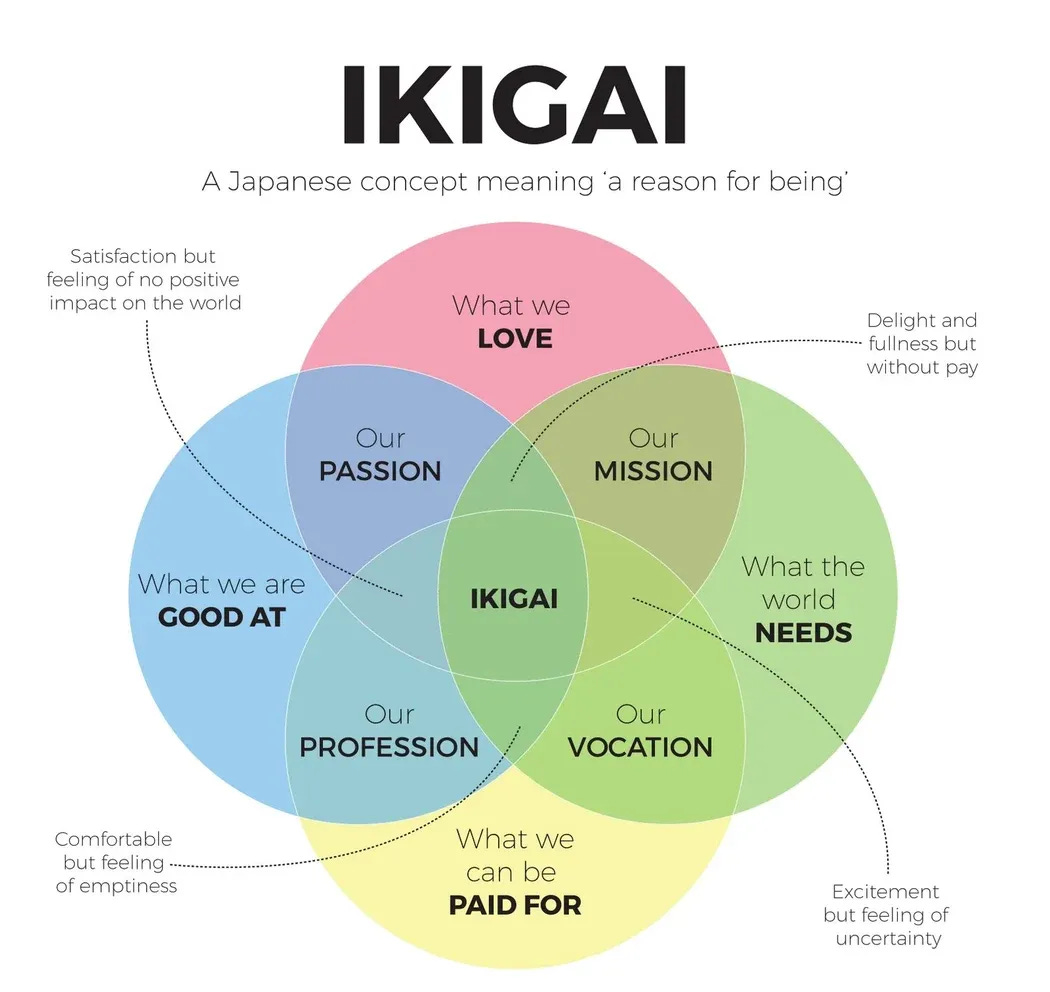
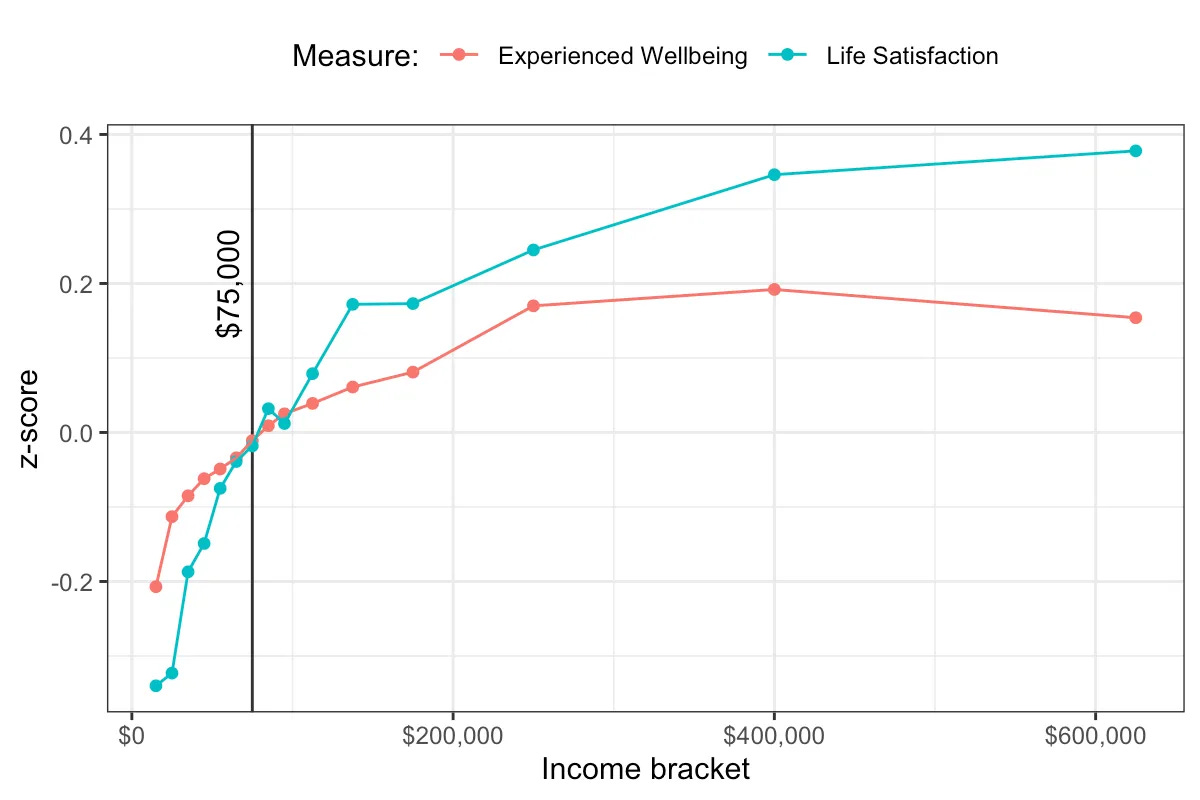
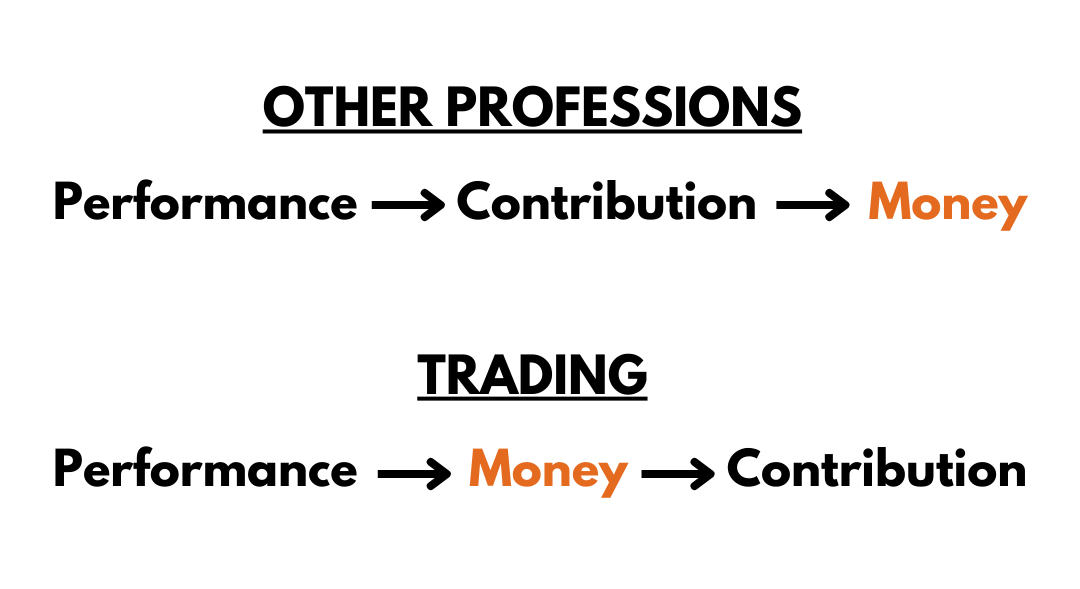
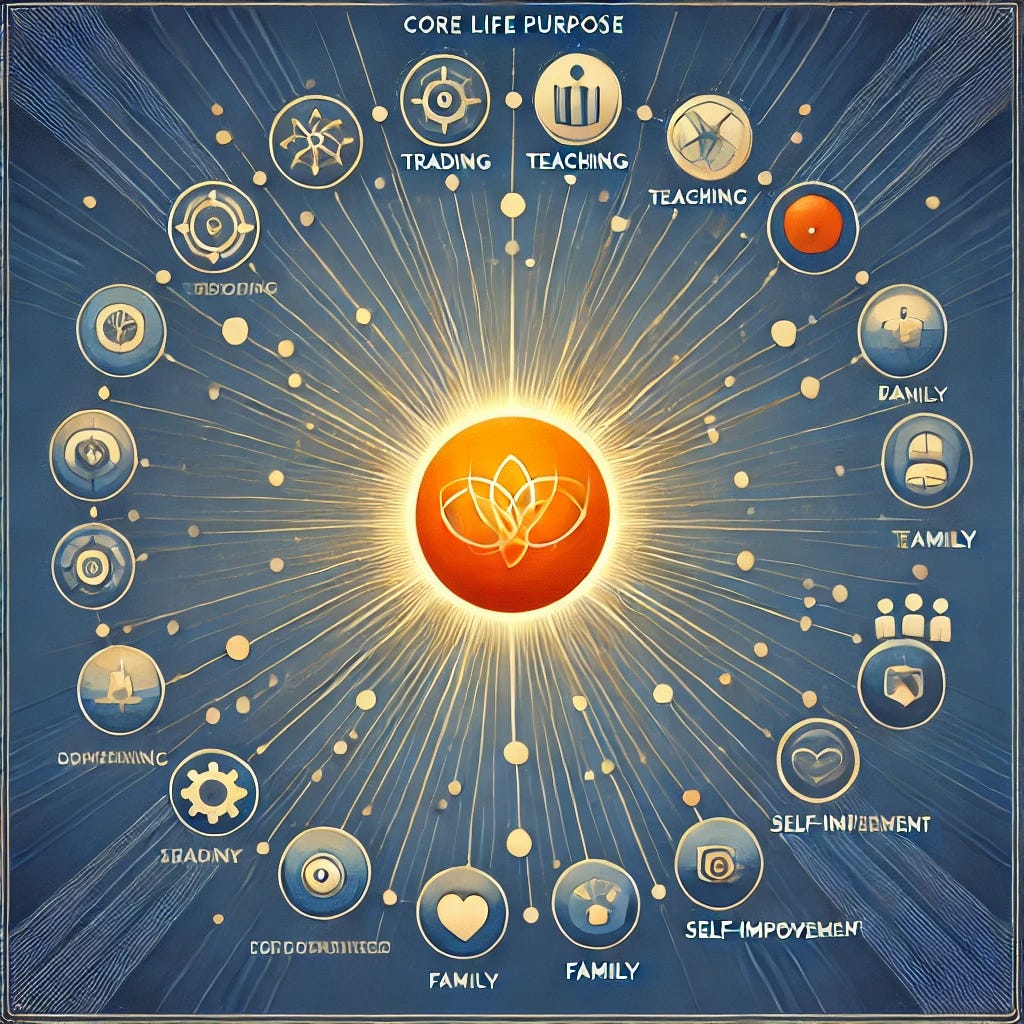

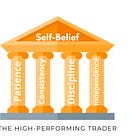

Interesting post, Sara. I want to comment on the research by Daniel Kahneman that you referred to. Money does lead to happiness :)
Mr. Kahneman eventually found that your happiness level increases quickly up to $75k a year (in 2009 dollars) and then it still increases, just more slowly.
I agree that shooting for money alone is a waste of our resources. There must be a big goal.
Really well written piece and great thoughts in here Sara. A recent post of mine shared similar thoughts regarding it's more about just "running numbers up on a scoreboard." There needs to be something more meaningful than that on the other side of making more money if you want to keep growing as a person and in your career.